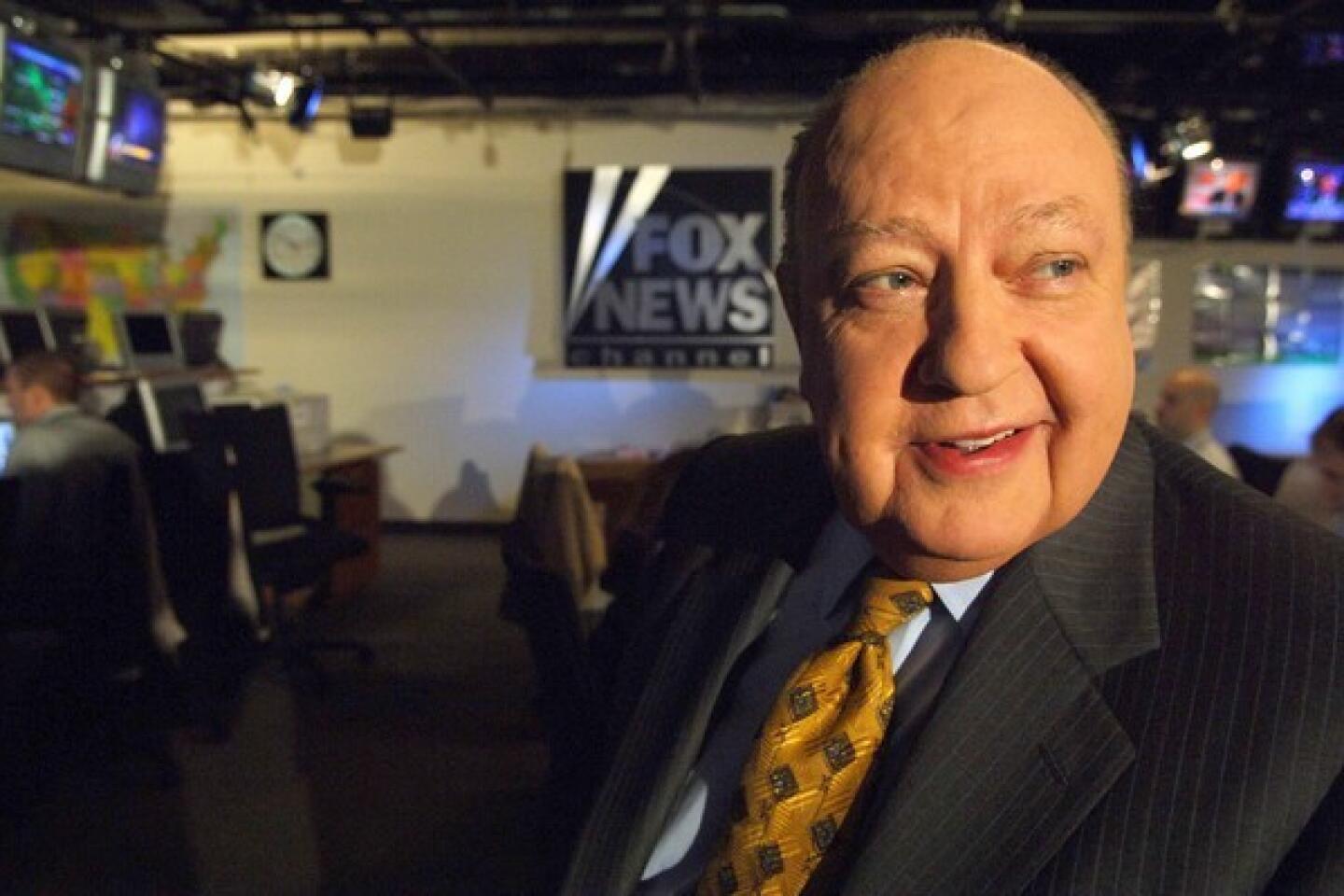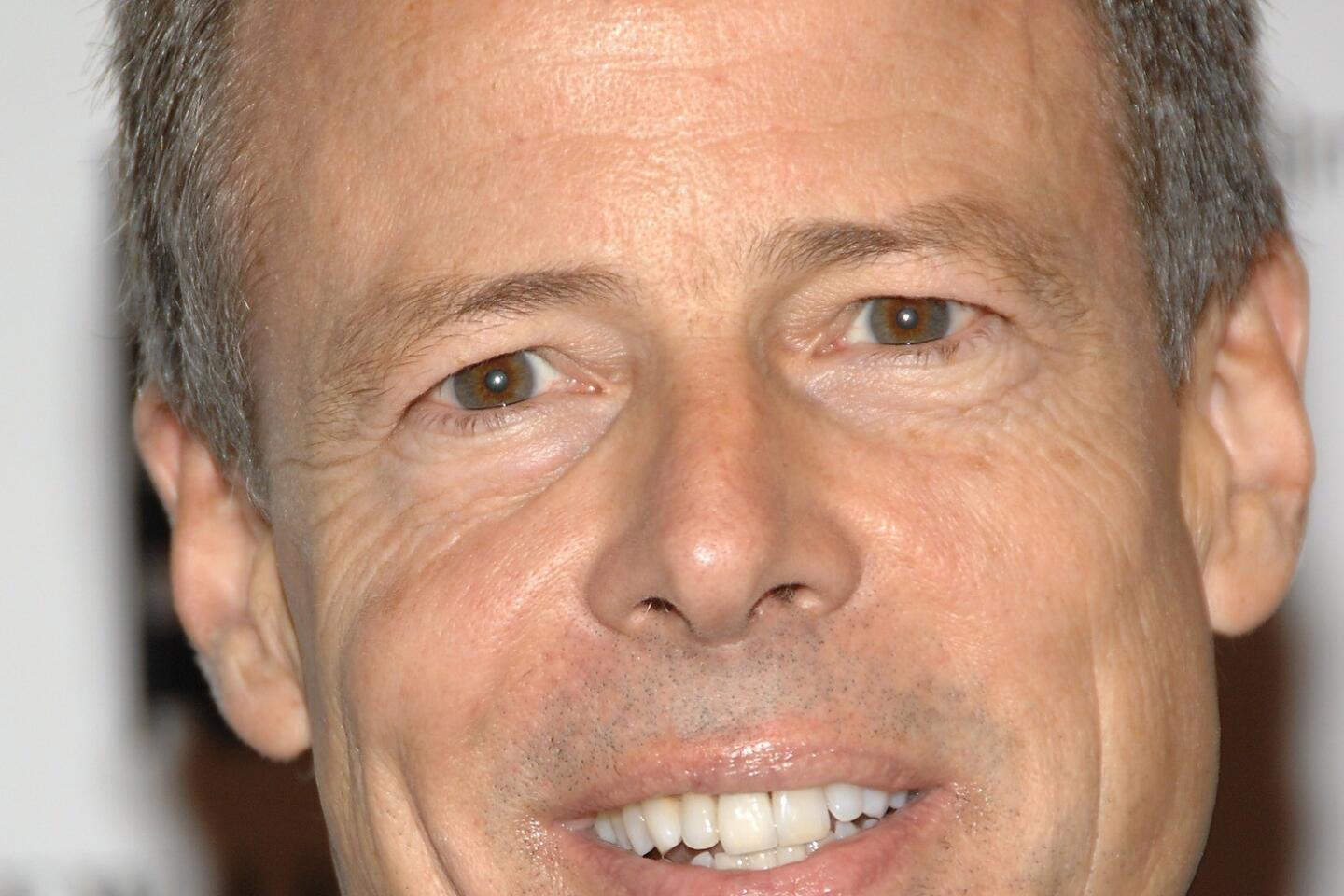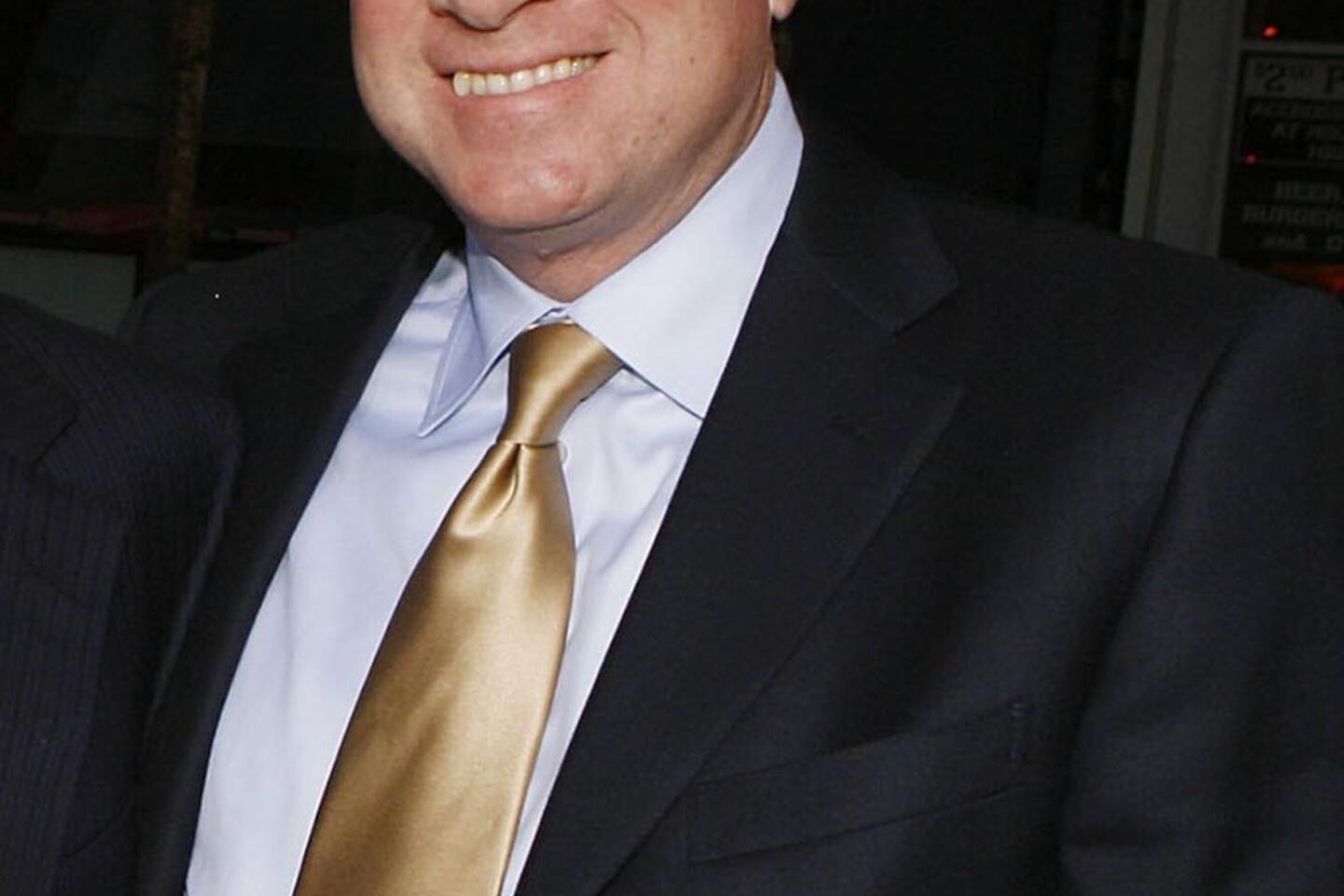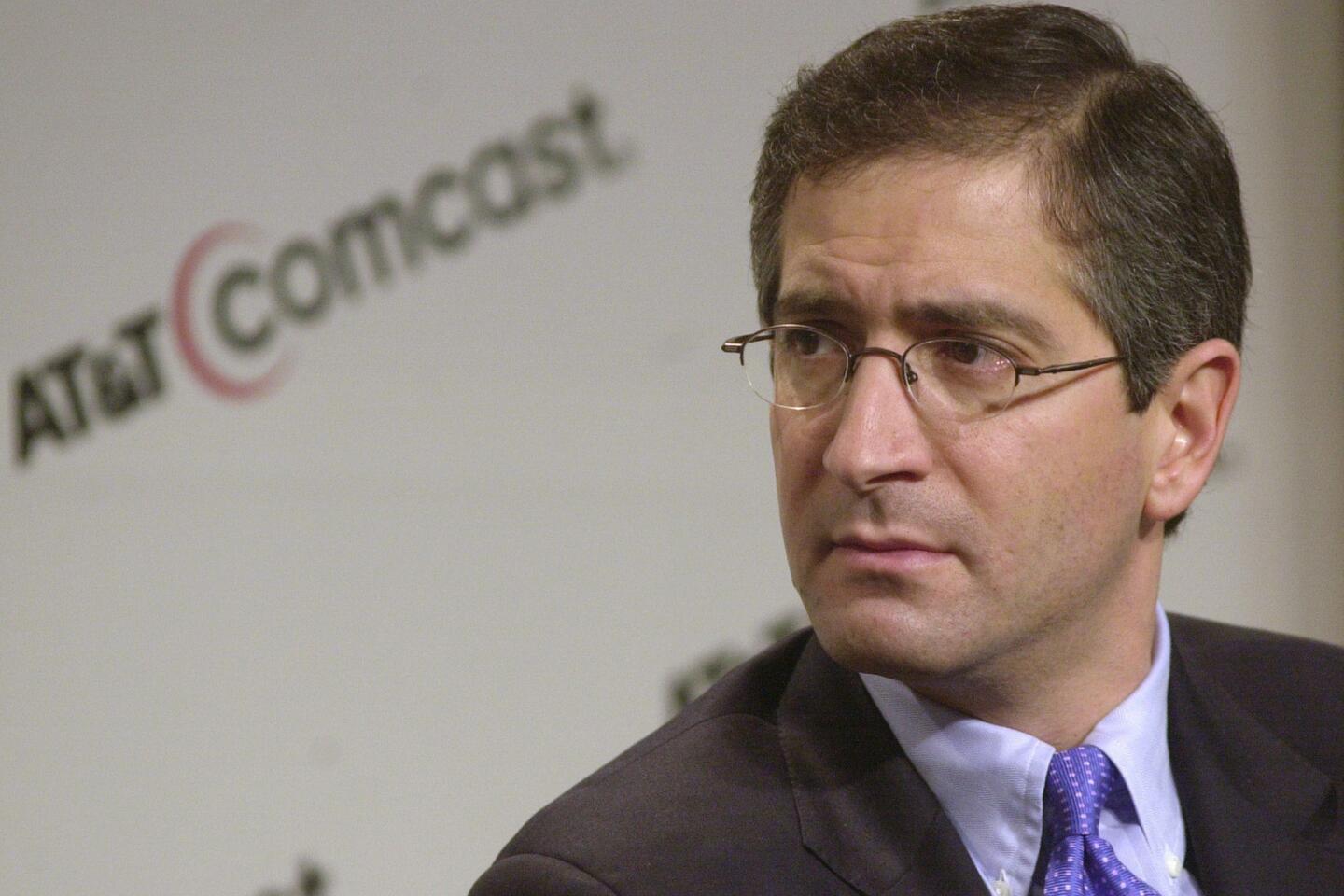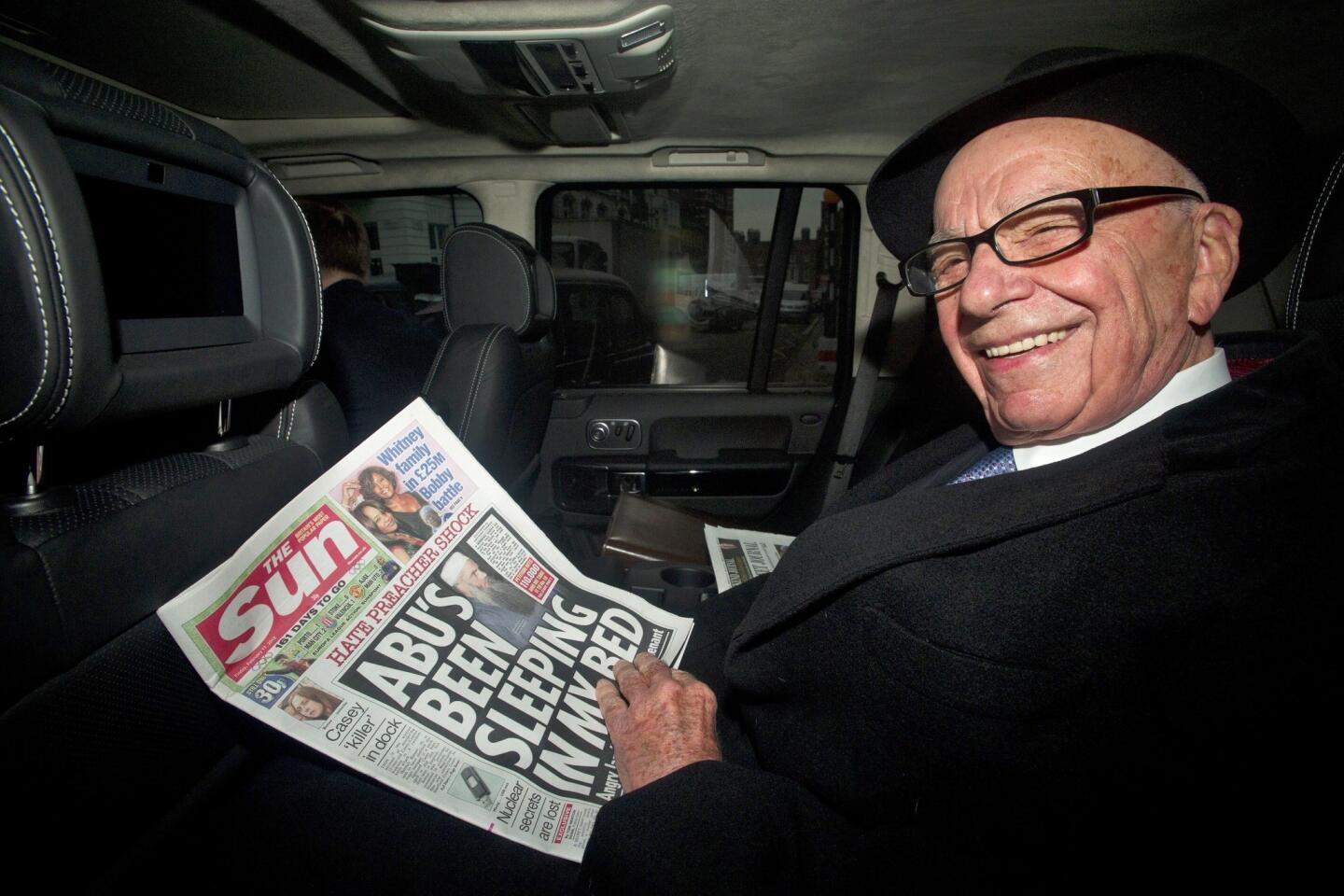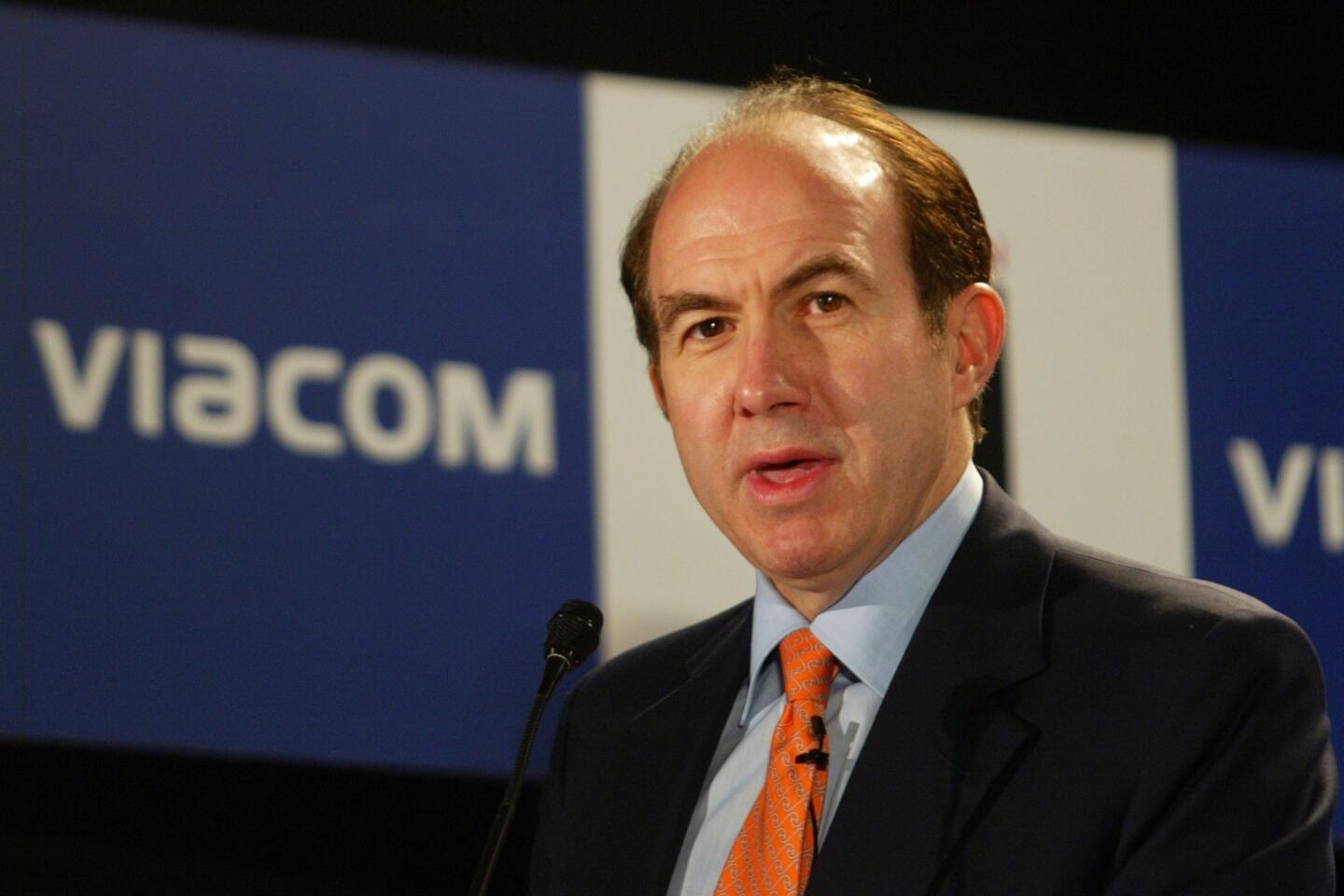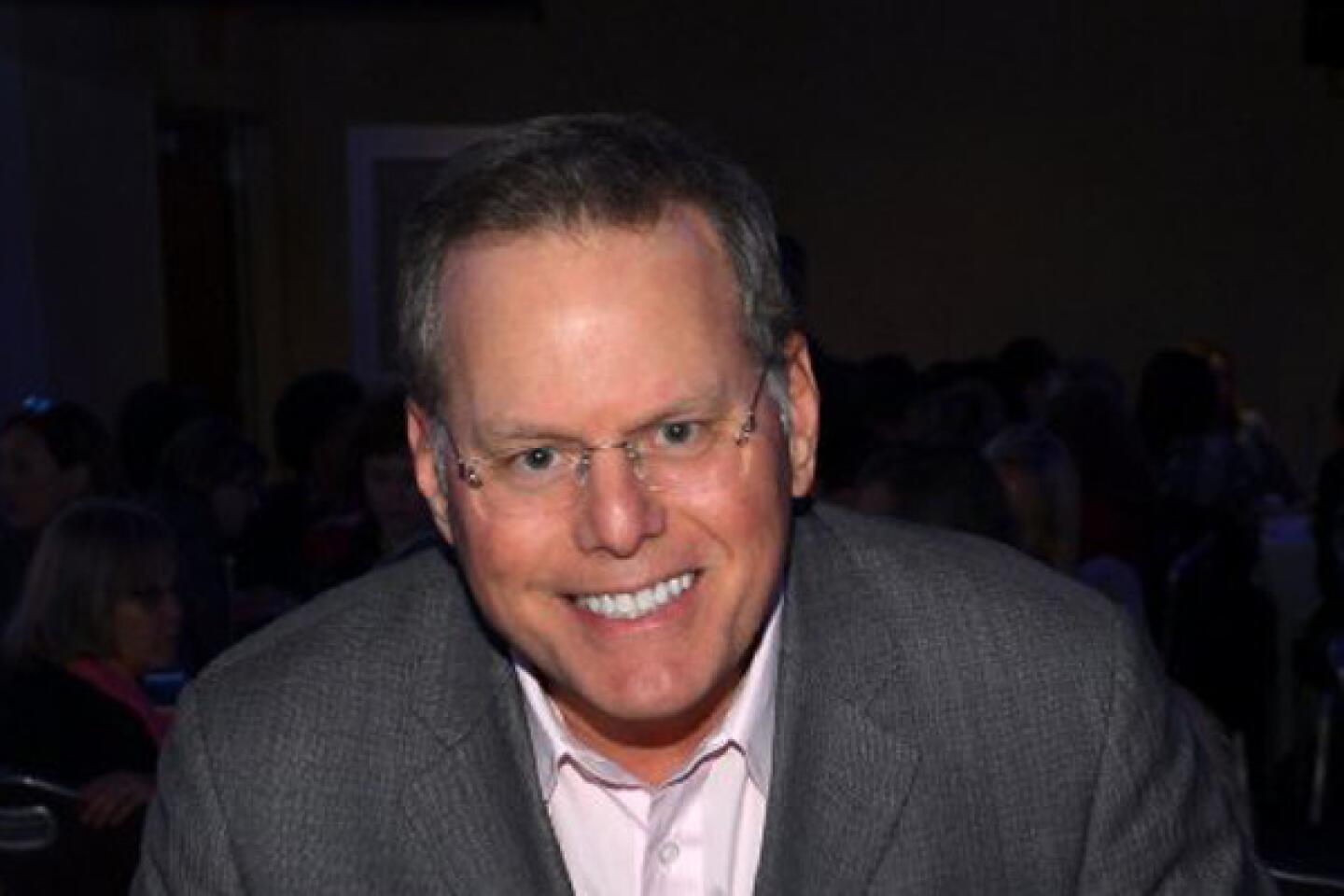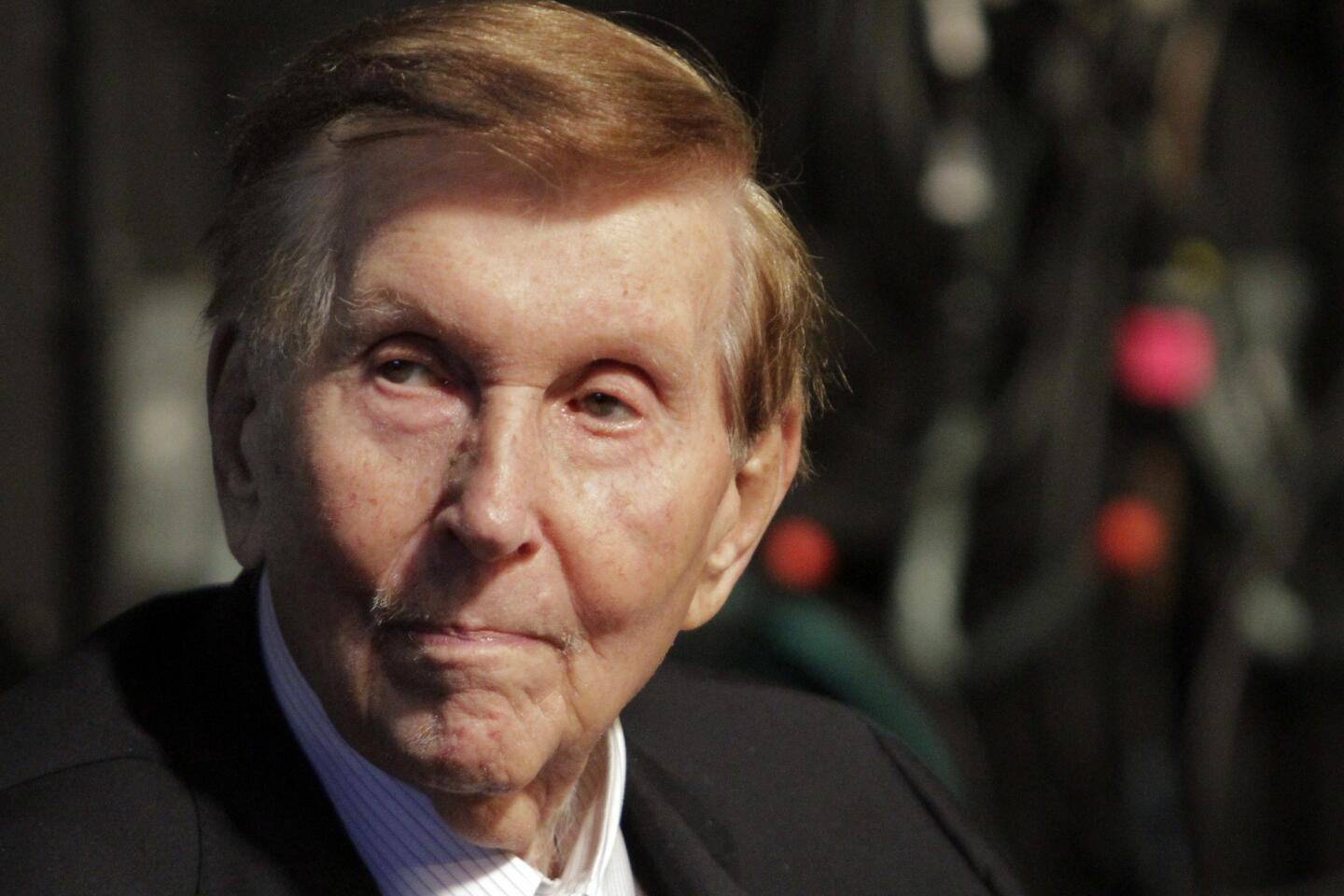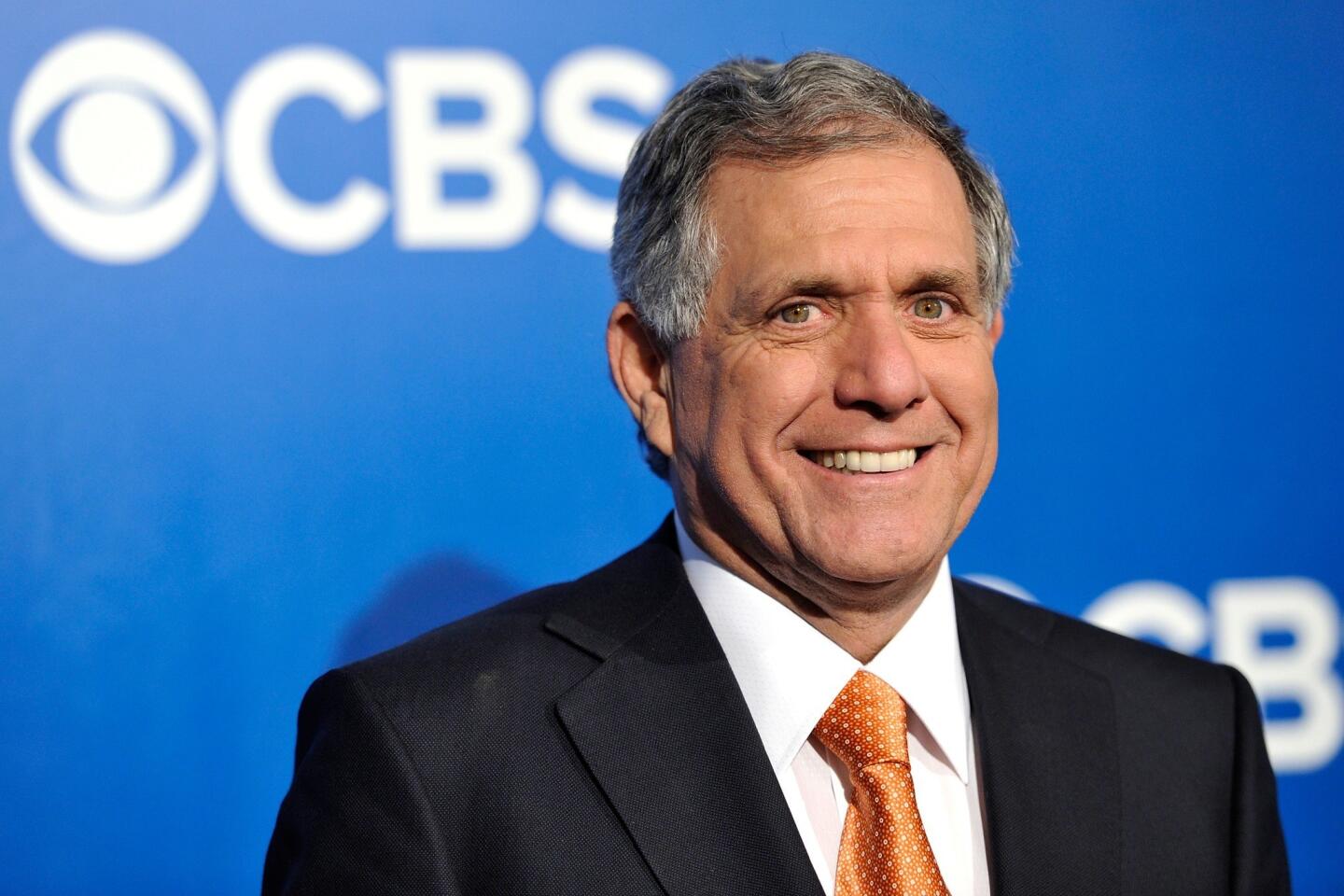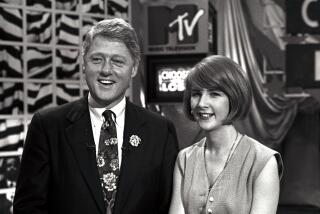Entrepreneur’s motor sports channel gains traction
- Share via
Former long-haul trucker Forrest Lucas got so disgusted when semis would break down in the desert heat that he designed a better truck oil in the 1980s and founded Lucas Oil Products.
Years later, when he needed a better way to transport his lubricants from his Midwest manufacturing plant, he bought a small railroad.
And when he needed a better way to reach potential Lucas Oil customers, he bought a cable television channel that specialized in racy entertainment for young men and turned it into MAVTV, a motor sports channel that televises drag races, boat races, motocross events and tractor pulls — all prominently featuring the Lucas Oil Products brand name.
FOR THE RECORD:
MAVTV: In the Nov. 26 Business section, an article about MAVTV, the motor sports channel owned by Lucas Oil founder Forrest Lucas, erroneously included AT&T U-verse among the cable providers that carry the network’s programming. U-verse does not carry MAVTV. —
“I have always tried to be in control of my destiny,” Lucas said in a recent interview.
PHOTOS: Cable versus broadcast ratings
In doing so, the 71-year-old founder and president of Lucas Oil Products Inc. has joined a field dominated by entrenched media conglomerates 21st Century Fox, Walt Disney Co.’s ESPN and NBCUniversal.
Already a little luck has fallen on Lucas and his Riverside County-based MAVTV team.
Last summer, Fox rebranded its Speed channel, which was created in 1995 as a vehicle to televise motor sports. Now called Fox Sports 1, the channel has widened its scope to include college football, college basketball and ultimate fighting. The switch gave MAVTV an opening to break from the pack — and get additional traction.
“We are a small independent in a land of giants,” said Bob Patison, Lucas Oil’s corporate attorney and MAVTV’s president.
ON LOCATION: Where the cameras roll
MAVTV is not the typical TV network located in Burbank or Century City. The home office, in Corona, houses more than 20 employees in a former citrus packing plant that doubles as headquarters for Lucas Oil and distribution center for some of the company’s 272 formulations — oils, fuel additives and other lubricants.
Just down the hall from TV editing bays is a laboratory where technicians test chemical compositions of oil. Outsourcing doesn’t seem to exist within Lucas Oil’s do-it-yourself culture.
The company maintains its customer service call center on site with representatives who actually know what’s under the hood. On weekends, the guys from the call center can be found mingling with VIPs at prominent races that Lucas Oil sponsors. The company, on occasion, has even built its own bleachers, as well as trophies that are handed out to race winners.
In January, the network plans to broadcast the Lucas Oil Chili Bowl from Tulsa, Okla., in which 300 midget race cars roar around the dirt in pursuit of the coveted “Golden Driller” trophy.
PHOTOS: Celebrities by The Times
The network features shows such as “High Tech Rednecks,” “My Classic Car,” “Chop, Cut, Rebuild” and other programs, including one about bull riders, “Hell on Hooves.” To round out the schedule, MAVTV licensed old movies such as “Karate Kid” and “A Few Good Men” and the classic TV western “Bonanza.”
“It’s a huge investment … to come up with enough programming to fill 24 hours a day, seven days a week,” Lucas said. He declined to say how much his company has spent on MAVTV, but acknowledged that it was well over $10 million and that the channel has yet to turn a profit.
“This has been like building a new factory,” Lucas said. “You’ve got to look a few years down the road to really see its potential, but we are confident that some day it will pay off.”
Lucas has long been a proponent of brand marketing. The home turf of the NFL’s Indianapolis Colts is Lucas Oil Stadium, and the company sponsors an array of races, including Southern California’s MAVTV 500 indy car race.
The company has been in the TV programming business for about eight years. Before buying the channel two years ago, it produced racing shows and sold them to other networks, a strategy that continues. But increasingly, the networks cut out the smaller events, which meant viewers at home weren’t seeing the Lucas Oil name as much.
“Now we have a place for our shows, and we made it a much better channel,” Lucas said. “We have also pretty much kept short-track racing alive — not only for us but for a whole lot of other people.”
MAVTV might represent the future of television, in which corporations, such as Pepsi or Red Bull, produce their own programming to serve as vehicles to showcase their brands as more people use digital recorders to fast-forward through traditional 30-second TV spots.
Gillian Zucker, president of the Auto Club Speedway in Fontana, said the Lucas family and MAVTV have been “huge” for the racing industry. “They are savvy marketers,” Zucker said. “It’s an extremely targeted audience that they are looking for — people who will buy their products.”
PHOTOS: 2012 highest-paid media executives
DirecTV began offering MAVTV in June, and the channel is now available in about 27 million homes — more than a quarter of the households in the U.S. with pay TV. Dish Network, Cox Communications, Charter Communications and dozens of tiny cable operators from around the country — including in Glen Elder, Kan., and Walnut Bottom, Pa., have signed up since this summer.
The company’s goal is to get carriage in more than 50 million homes.
But before MAVTV got traction, it had to undergo a radical transformation from its roots as Maverick Entertainment, a TV channel that displayed scantily clad women in Roller Derby races and other fare in a bid for young male viewers. But the titillating channel was on the ropes.
Cable distributors were not interested in offering it and potential buyers of the channel were scarcer — until Lucas Oil entered the picture.
PHOTOS: Celebrity production companies
“The programming was terrible,” Lucas said. “These guys started the channel just to flip it, and they couldn’t so they were stuck with it.”
In 2008, Lucas Oil became an investor in the channel and acquired it outright in 2011.
“We had to remove the objectionable content,” Patison said. “It took us eight months to make the network presentable, but we jumped in with both feet to try to make something out of it.”
Lucas and Patison figured the major networks were favoring Los Angeles and New York over the rural heartland. So they added “American Real” to the MAVTV name and concentrated on programming that would play in the so-called flyover states and function as a blue collar channel for gearheads.
“We wanted to reach the middle class, hard-working America,” Patison said. “It is a different culture and it is not well served by the media world. This is our niche.”
[Updated: A previous version of this story stated that AT&T U-Verse carries MAVTV. It does not.]
More to Read
From the Oscars to the Emmys.
Get the Envelope newsletter for exclusive awards season coverage, behind-the-scenes stories from the Envelope podcast and columnist Glenn Whipp’s must-read analysis.
You may occasionally receive promotional content from the Los Angeles Times.
